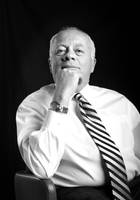
Bruce Spotleson
VEGAS INC Coverage
At the age of 20, at a time in life when most young people are trying to figure out how to pay for their entertainment, Michael Schivo was producing it. He already was on his way to becoming an impresario in the entertainment capital of the world, his hometown of Las Vegas.
The timing was right. As Schivo notes in the beginning of his autobiography “Promoter!,” his was the generation that came of age when rock music was first emerging as a serious force in American culture.
Now, at 65, Schivo is the godfather of concert promotion in Las Vegas and a legend in local rock.
He started in 1966. His first concert was a free event that drew a couple hundred kids. The first show that people actually paid him to see was in 1968 at the Las Vegas Convention Center rotunda.
In between, there were lots of far-out experiences. Money was made, money was lost.
“The business wasn’t for the faint of heart,” Schivo recently recalled. “Certainly not anything that you could just go into rubbing two silver dollars together and hoping for the best. Although that’s kind of how I started: taking a shot, borrowed to the hilt.”
It was a big deal to be a concert promoter then. Bring the right band to town and you were The Man.
“In those days, you could leverage it,” Schivo said. “The word ‘promoter’ does not carry as much honor today as it did in the ’60s.”
For the audience, a concert is about having a good time. For the promoter, it’s a business with lots of moving parts, like 50-page contract riders that spell out the most intricate details of what performers expect onstage, in their dressing rooms or somewhere in between.
“The egos were running so high with big rock acts,” Schivo said.
But he took care to comply with the paperwork and make sure it all went according to plan because that was what future prospective acts would measure him by.
Schivo worked hard and methodically to succeed with concerts in Las Vegas and Reno, markets other promoters hadn’t yet dominated. He took them by storm.
From Bolton to Zappa, an eclectic collection of artists are mentioned in Schivo’s book. It’s a roster too long to list, but you’d recognize almost all the names. Some were easy to work with; others, not so much. And as with most businesses, failure was not an option. There was too much money riding on it.
“As you got to know them, most of the acts were friendly,” Schivo said. “Let’s face it, it was really a dance — a dance between their manager, the agent, the record company, the promoter, the act. Everybody needed all the component parts to work together to get a payday out of them.”
At 330 pages, the book has great stories from early local concert scenes. While promoters didn’t always hang out with performers back then, Schivo often found himself in their spheres.
Like the time he downed a bottle of wine with Joni Mitchell. Or the night he shared other things with John Lennon. Don’t bother to question his memory on that one because he has the Polaroid, and it’s pre-Photoshop.
Longtime locals also may recall the riots at Schivo’s Deep Purple show, which went awry and resulted in big changes both for police and promoters.
You’ll have to grab the book to get the details on that and other high-profile mistakes and successes, along with myriad tales of comedy, art exhibits and, of course, obligatory sex, drugs and rock ’n' roll vignettes. It’s a virtual primer on how the independent promotion business evolved locally.
Jazz has been Schivo’s focus in more recent years, but he’s worried about the genre.
“The jazz concept is pretty much dead,” he said, the result of many radio stations dropping jazz formats. But the festivals remain popular.
Schivo gives literary credit to Bill Kunkel, a longtime friend who edited the book but passed away before it was completed.
“He helped me find my voice,” Schivo said. “Any shortcomings in the book belong to me.”
Schivo’s memories of a long-gone era linger.
“This isn’t necessarily the Michael Schivo story,” he said. “These are things that affected everybody who loved rock and roll and concerts in general and lived in Nevada, because everything that happened would have affected them, as well. This is their story as much as my story.”